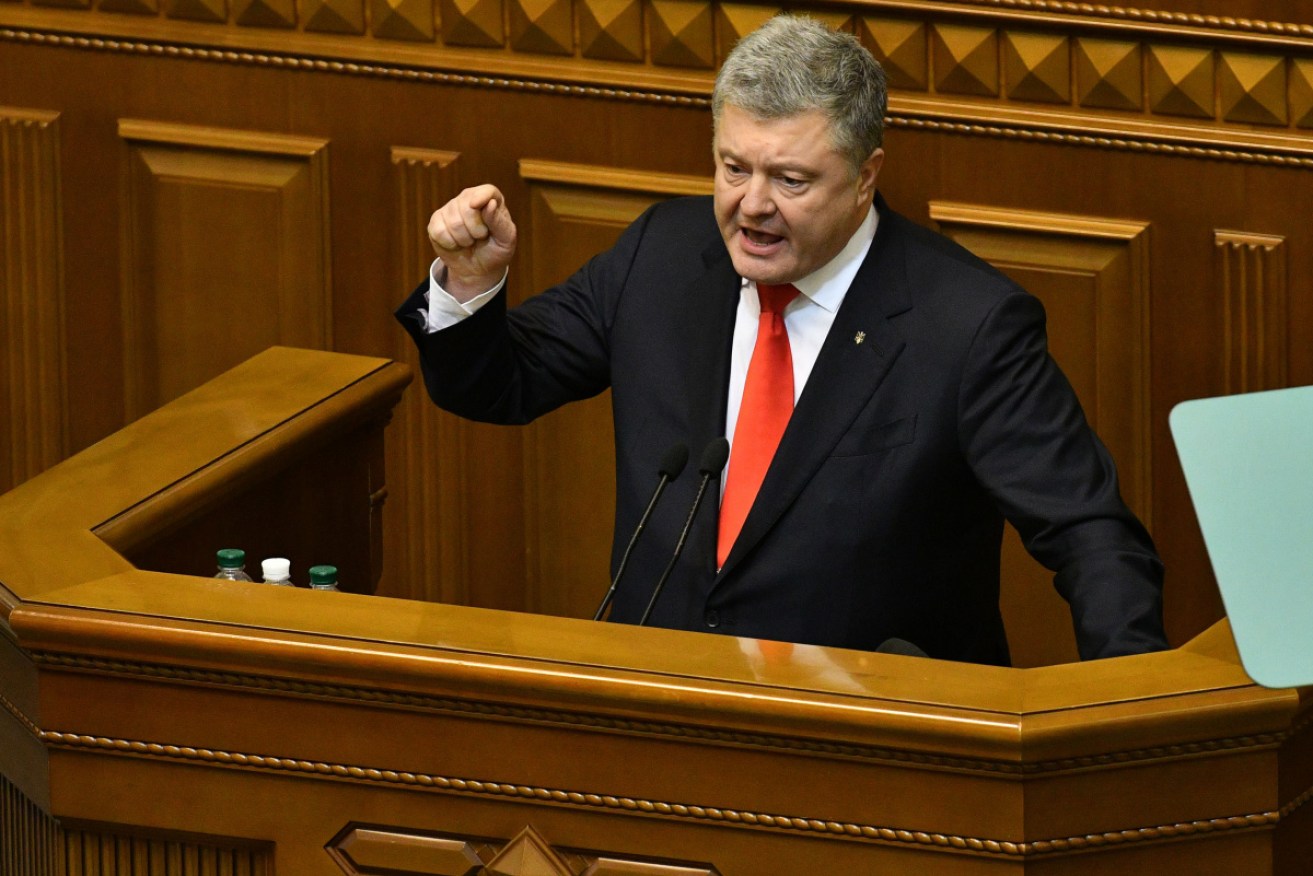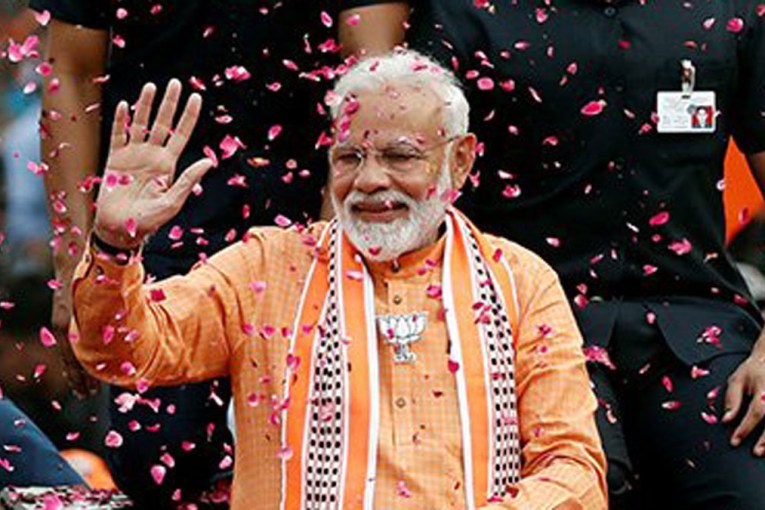Ukraine imposes martial law after Russian ‘aggression’

Ukrainian President Petro Poroshenko (2nd R) shakes hands with Ukrainian MPs after they voted on the request of the Ukrainian President to impose martial law in the country. Photo: Getty Photo: Getty
Ukraine’s parliament has voted to impose martial law in the country to fight what its president called “growing aggression” from Moscow after a weekend naval confrontation off the disputed Crimean Peninsula in which Russia fired on and seized three Ukrainian vessels.
Western leaders and diplomats urged both sides to de-escalate the conflict, and the US blamed Russia for what it called “unlawful conduct” over Sunday’s incident in the Black Sea.
Russia and Ukraine blamed each other in the dispute that further ratcheted up tensions brewing since Moscow annexed Crimea in 2014 and threw its weight behind separatists in eastern Ukraine. Russia provided clandestine support, including troops and weapons.
Ukrainian President Petro Poroshenko asked politicians on Monday in Kiev to institute martial law, something the country has not done even during the worst of the fighting in the east that killed about 10,000 people.
After a five-hour debate, parliament overwhelmingly approved his proposal, voting to impose martial law for 30 days.
Poroshenko said it was necessary because of intelligence about “a highly serious threat of a ground operation against Ukraine.” He did not elaborate.
“Martial law doesn’t mean declaring a war,” he said.
It is introduced with the sole purpose of boosting Ukraine’s defence in the light of a growing aggression from Russia.”
Ukraine’s Defence Ministry already announced earlier in the day that its troops were on full combat alert in the country.
The approved measures included a partial mobilisation and strengthening the country’s air defence. It also contained vaguely worded steps such as “strengthening” anti-terrorism measures and “information security” that could curtail certain rights and freedoms.
Poroshenko’s critics reacted to his call for martial law with suspicion, wondering why Sunday’s incident merited such a response. His approval ratings have been plunging, and there were concerns that he would postpone a presidential election scheduled for March.
At a UN Security Council meeting, US Ambassador Nikki Haley urged Russia to “immediately cease its unlawful conduct” in the Black Sea.
Anne Gueguen, the French deputy permanent representative at the UN, urged the release of the sailors and the vessels.
But Russia called Ukraine’s actions “dangerous.”
Dmitry Polyanskiy, Russia’s first deputy permanent representative to the United Nations, told the Security Council the incident was another example of Ukrainian leaders trying to provoke Russia for political purposes.
The European Union and NATO called for restraint from both sides. NATO said Stoltenberg expressed the US-led military alliance’s “full support for Ukraine’s territorial integrity and sovereignty, including its full navigational rights in its territorial waters under international law”.
German Chancellor Angela Merkel also spoke by telephone with Poroshenko to express her concerns and emphasise the need for de-escalation and dialogue, her office said.
British Prime Minister Theresa May’s spokesman, James Slack, said the incident was “further evidence of Russia’s destabilising behaviour in the region and its ongoing violation of Ukrainian territorial integrity”.








